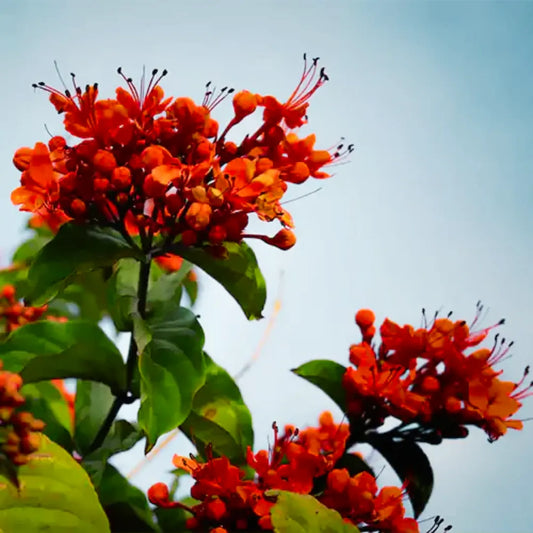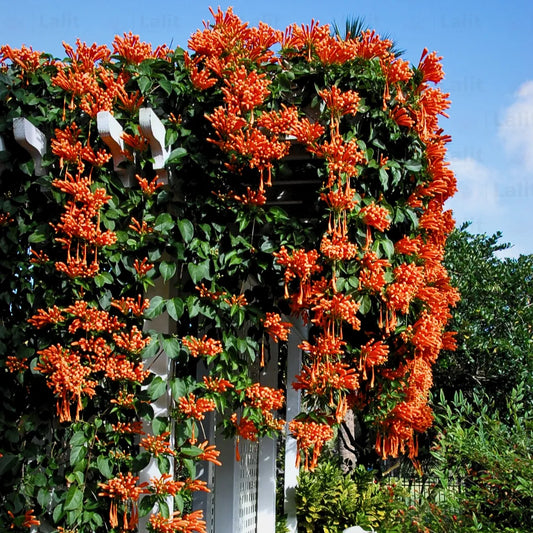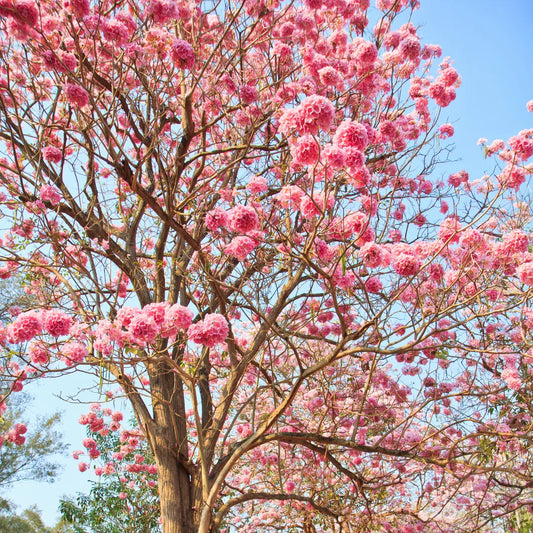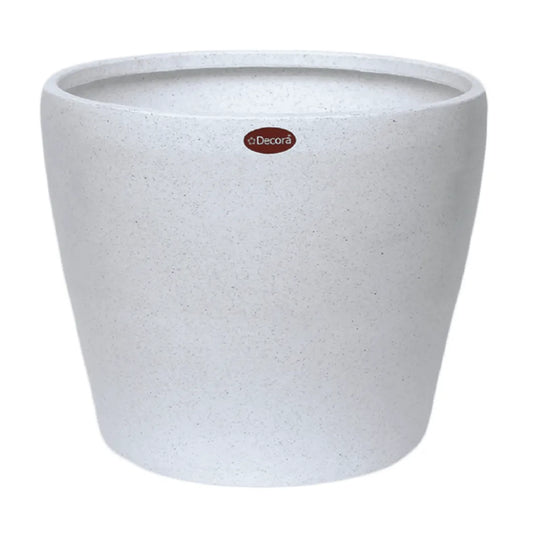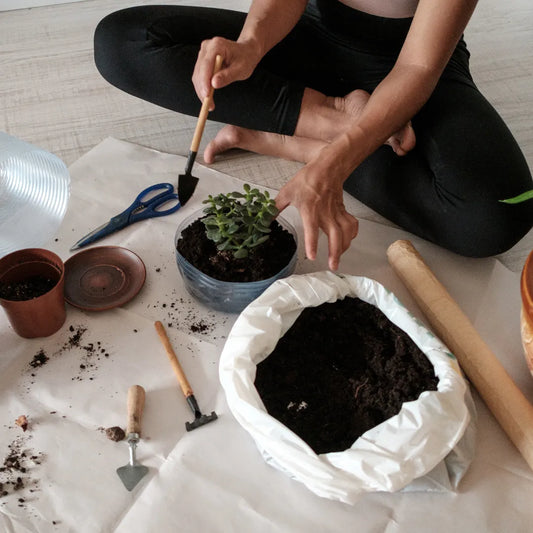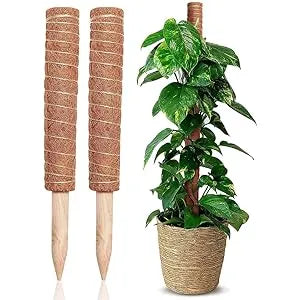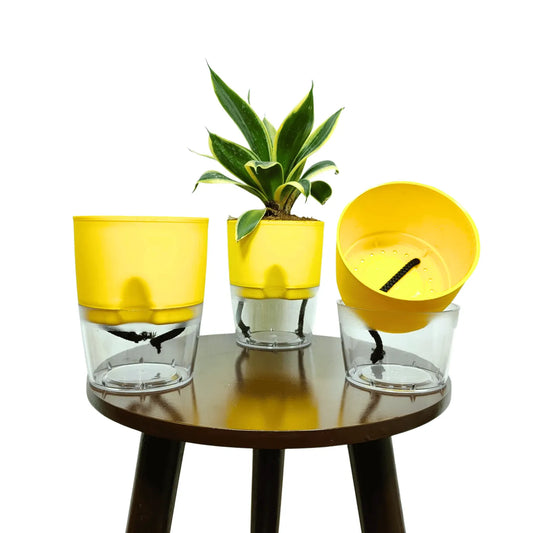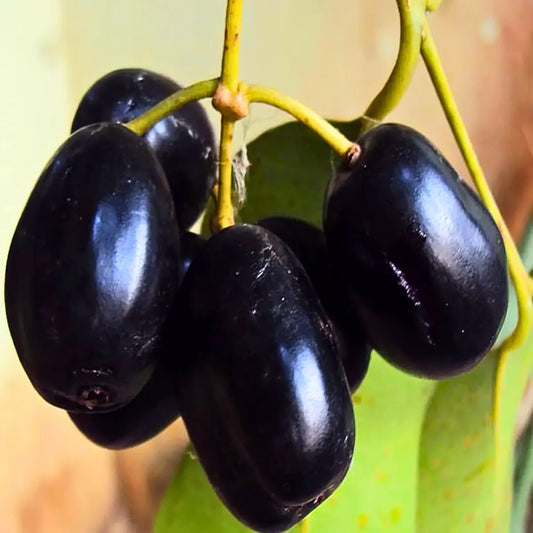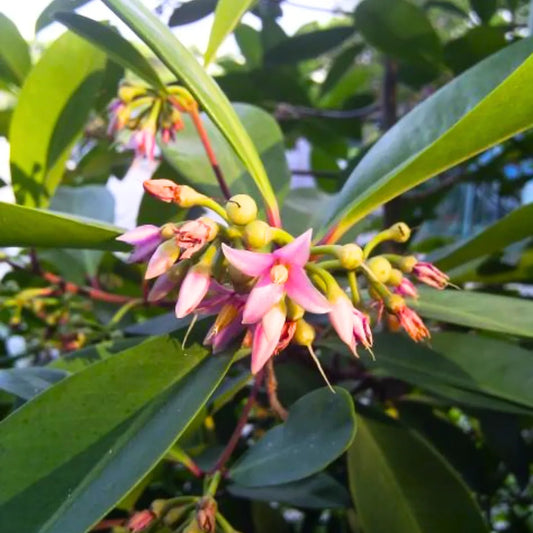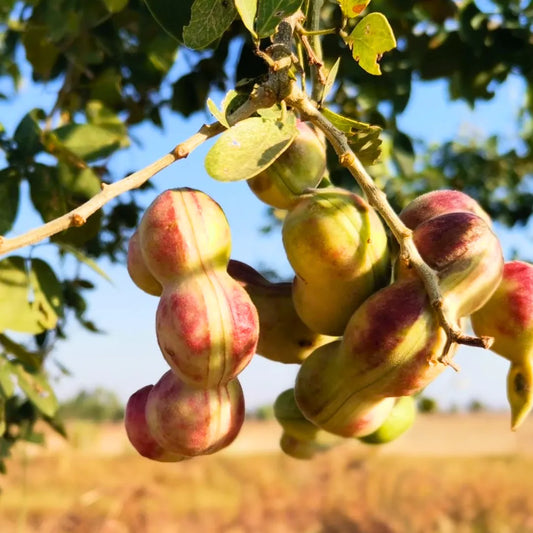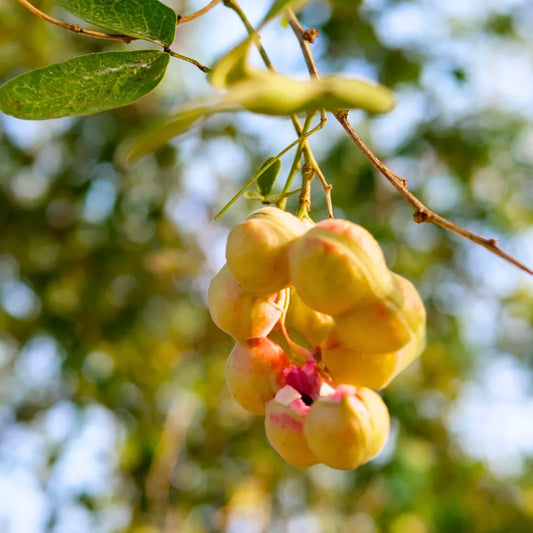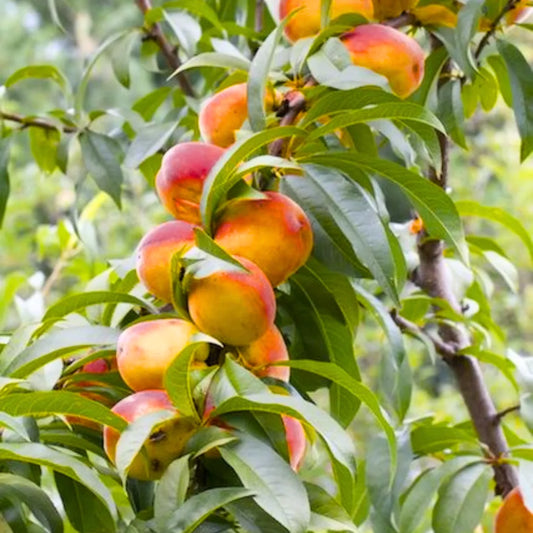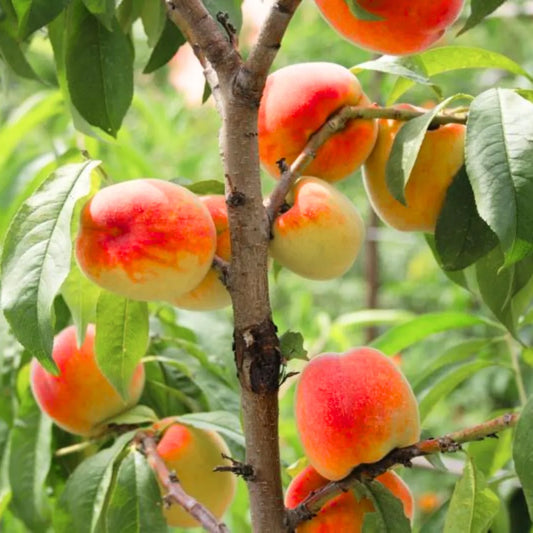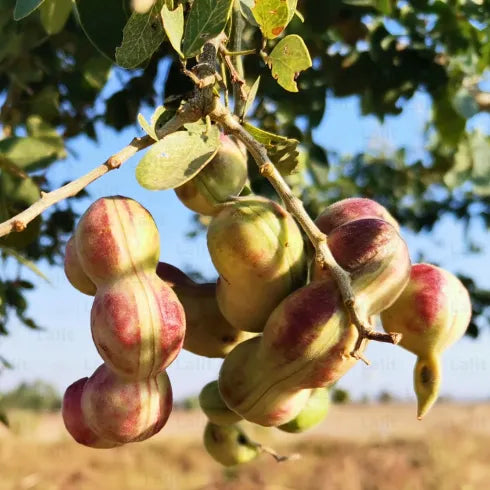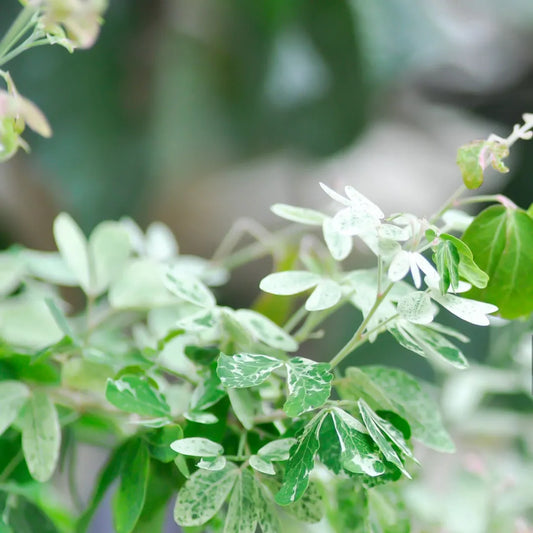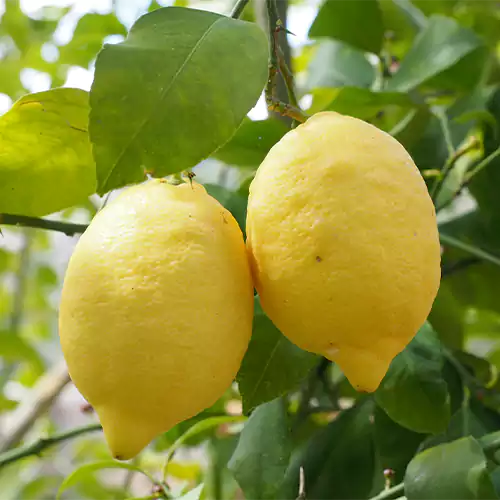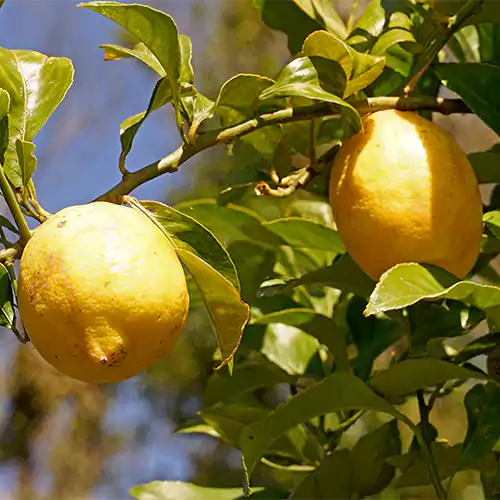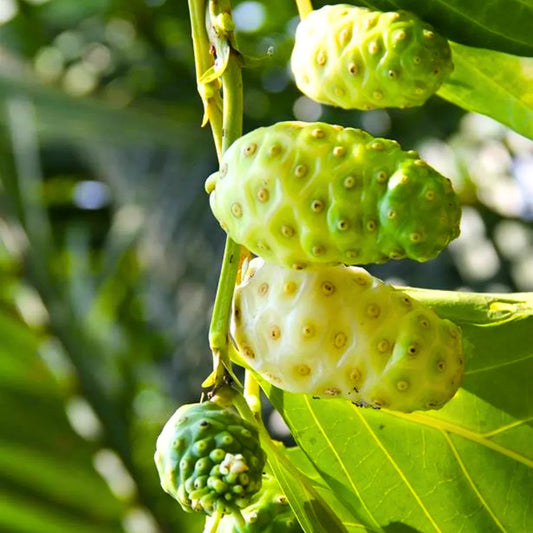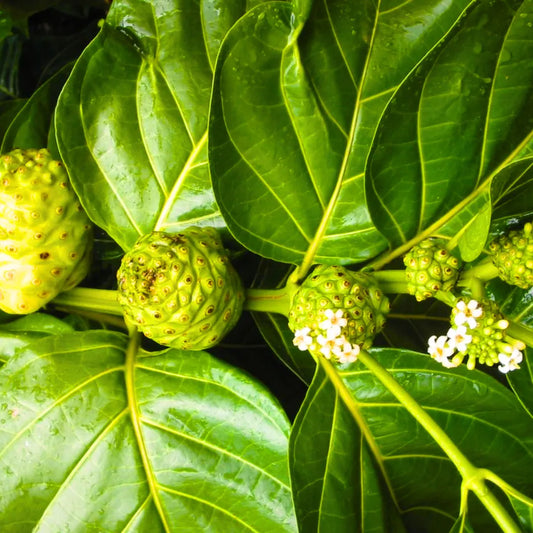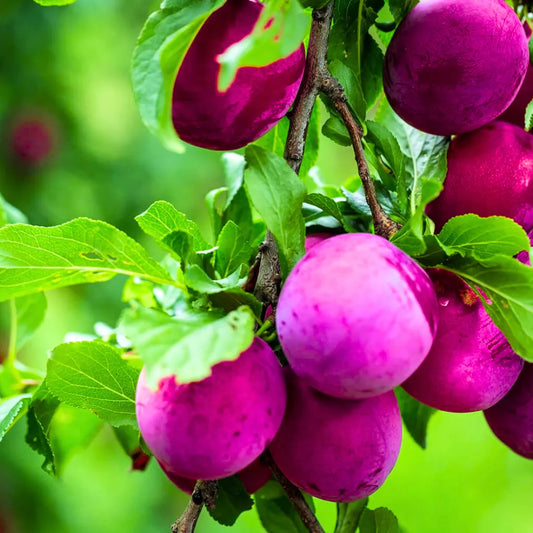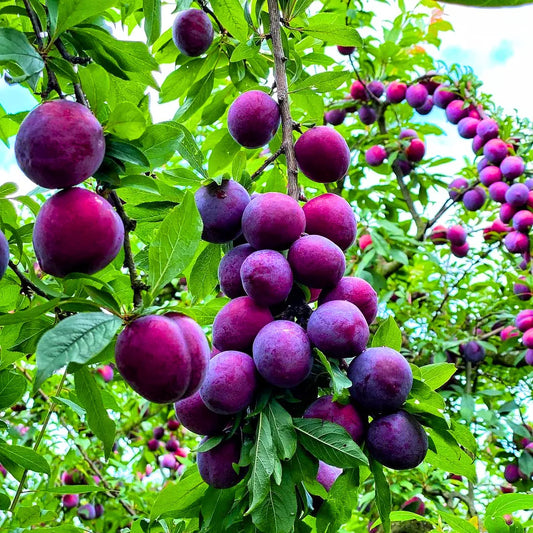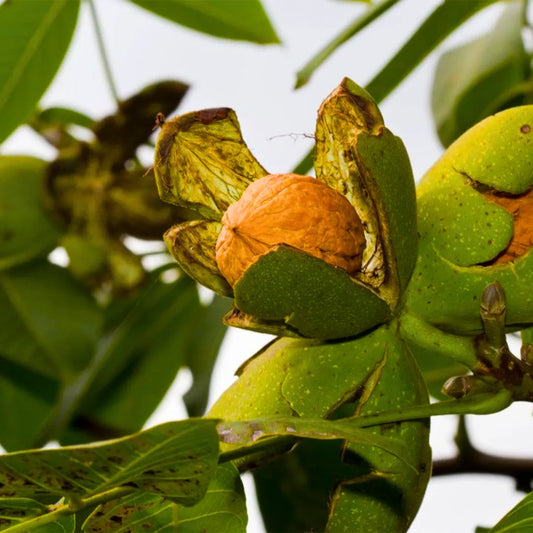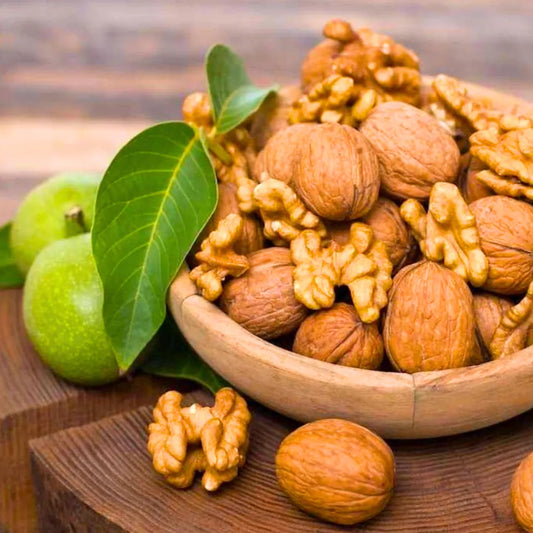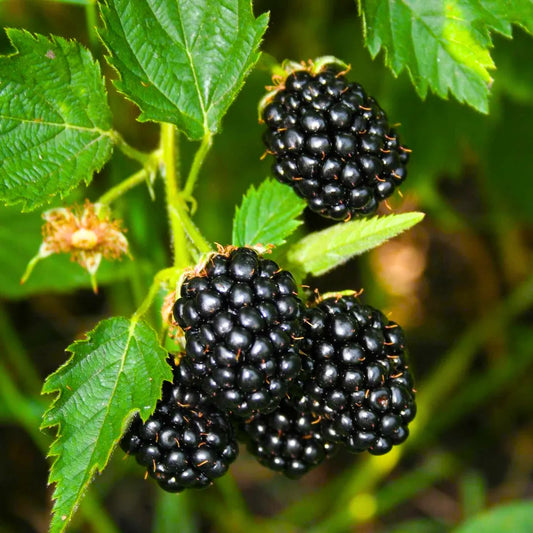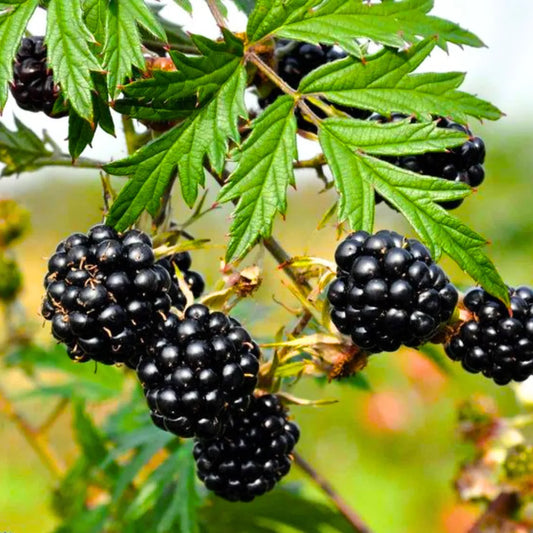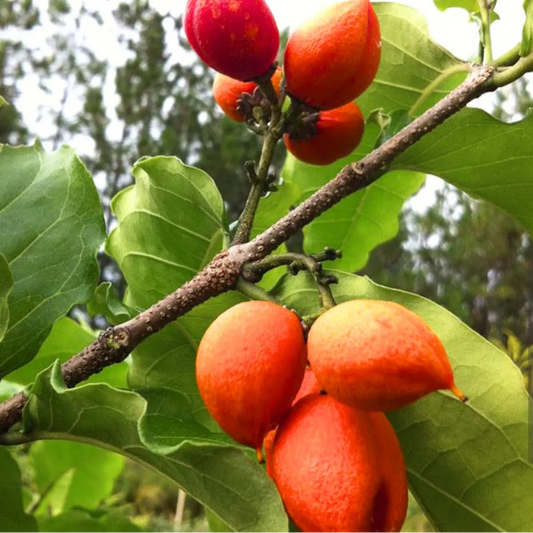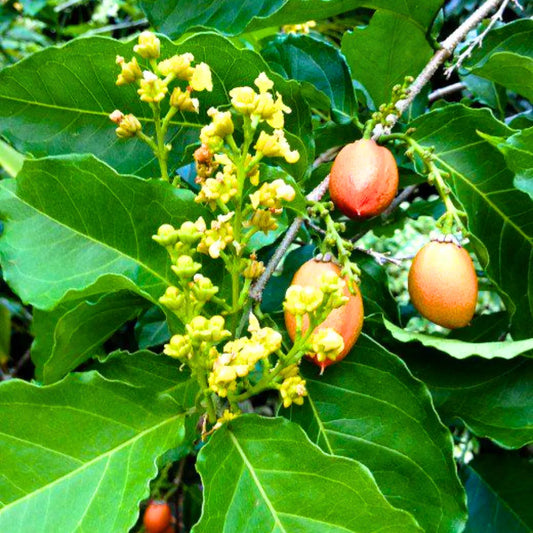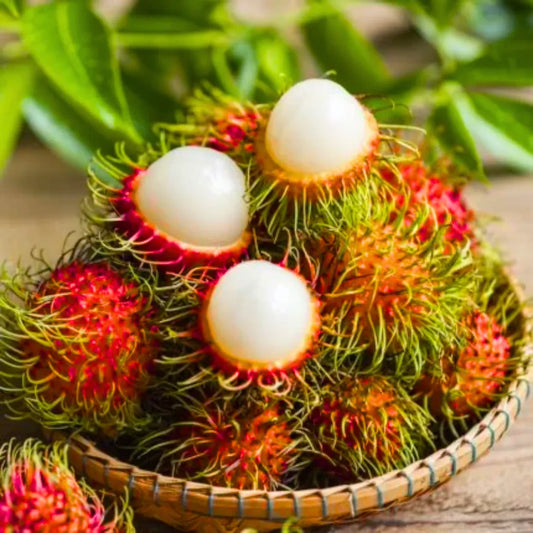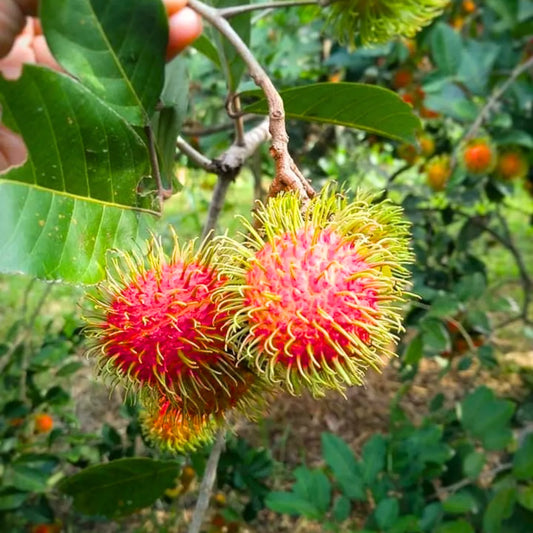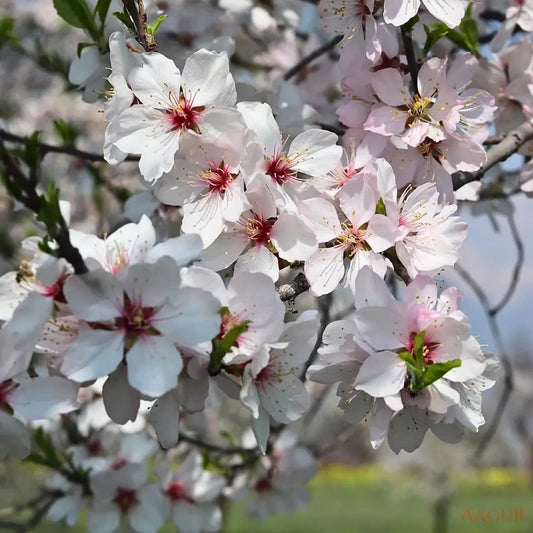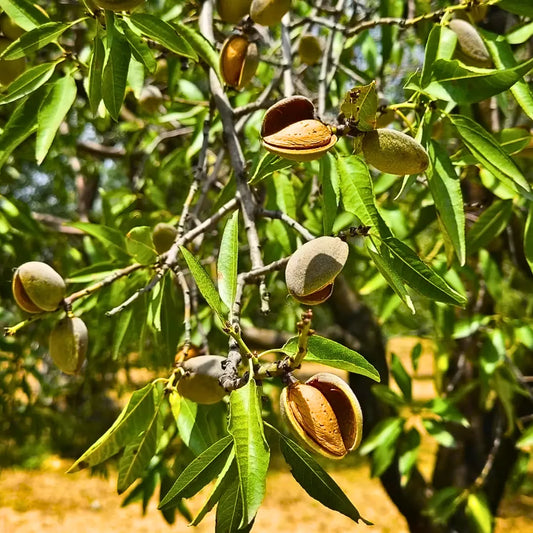Phoenix Palm (Phoenix Canariensis) - Plant
Phoenix Palm (Phoenix Canariensis) - Plant
Phoenix Canariensis
Couldn't load pickup availability
Share this product
Note: Plants may slightly differ from shown images depending on Season and growth pattern
Questions? Speak with our Experts: 797-436-5167





Phoenix Palm (Phoenix Canariensis) - Plant
The Phoenix Palm (Phoenix Canariensis), commonly known as the Canary Island Date Palm. It is an elegant ornamental palm admired for its majestic appearance and feathery fronds. Native to the Canary Islands. This plant thrives in tropical and subtropical climates. It is primarily an outdoor plant, perfect for landscapes, gardens, and large containers.
The Phoenix Palm is well-known for its graceful canopy and resilience to heat and drought. It a popular choice for adding a luxurious, tropical vibe to any space, with minimal maintenance needs and high ornamental value. This palm is a true statement piece for outdoor décor.
Growing Requirements
Growing Requirements
Sunlight for Phoenix Palm Plant
Your Phoenix Palm Plant thrives in full sunlight, requiring at least 6–8 hours of direct sun daily. It prefers bright, open spaces and grows best when placed in warm, sunny outdoor locations.
Watering
Water your Phoenix Palm Plant regularly but moderately, allowing the topsoil to dry slightly between watering. It prefers well-drained soil and should not be overwatered, as excess moisture can lead to root rot.
Fertilizing for Phoenix Palm Plant
Feed your Phoenix Palm Plant with a balanced slow-release fertilizer during the growing season (spring to summer). Use a palm-specific fertilizer rich in nitrogen, magnesium, and potassium to support healthy fronds and strong growth.
Planting and Care
Planting and Care
Container
Choose a large, sturdy container with good drainage holes to accommodate your Phoenix Palm’s Plant deep root system. Ensure the pot allows room for growth and use well-draining soil to prevent waterlogging.
Pruning
Prune your Phoenix Palm Plant by removing dead or damaged fronds near the base to maintain its neat appearance. Avoid over-pruning, as healthy fronds are essential for the plant’s growth and nutrient balance.
Propagation
Your Phoenix Palm Plant is best propagated through seeds or offshoots (pups) that grow at the plant’s base. Offshoot propagation is faster and ensures the new plant retains the parent’s characteristics.
Repotting
Repot your Phoenix Palm Plant every 2–3 years or when it outgrows its container. Choose a larger pot with good drainage and use a well-draining soil mix to promote healthy root development and growth.
Common Pest
Your Phoenix Palm Plant may be affected by spider mites, scale insects, and mealybugs. Regularly inspect the fronds and treat infestations promptly with neem oil or insecticidal soap to keep the plant healthy.
Dimensions
Dimensions
Live plant along with the plastic pot.
Plant height is 12"-18" inches in Medium size Pot.
Plant height is 24"-36" inches in Large size Pot.
Plant height is 56"-68" inches in Extra Large size Pot.
Plant height is 6-7 ft, (4 ft clear stem) in XXXL 16 Inch Pott.
Low maintenance, outdoor, palm plant, Useful for landscapes, gardens, and large containers.
Shipping Details
Shipping Details
In General our team requires 1-2 Days for Processing the Plants and further 3-4 days for it to reach your Home Safely
Our team makes sure to selects only the healthiest, happiest plants for you. We pack them with extra love and care, making sure they have everything they need for a safe and comfortable journey to your doorstep.
We deliver quickly and safely across the country, so your new plant arrives fresh and ready to thrive.
Questions? Speak with our Experts: 797-436-5167
On Bloom This Season
-
Clerodendrum Splendens "Flaming Glorybower" - Plant
No reviewsRegular price From Rs. 449.00Regular priceUnit price / perRs. 700.00Sale price From Rs. 449.00Sale -
Trumpet Vine (Pyrotegia Venusta) - Plant
No reviewsRegular price From Rs. 349.00Regular priceUnit price / perRs. 500.00Sale price From Rs. 349.00Sale -
Jacaranda Mimosifolia "Neel Mohar" - Plant
No reviewsRegular price From Rs. 549.00Regular priceUnit price / perRs. 750.00Sale price From Rs. 549.00Sale -
Black Lady Rose - Plant
No reviewsRegular price From Rs. 599.00Regular priceUnit price / perRs. 800.00Sale price From Rs. 599.00Sale -
Tabebuia Rosea (Rosy Trumpet Tree) "Pink Poui" - Plant
2 reviewsRegular price From Rs. 549.00Regular priceUnit price / perRs. 750.00Sale price From Rs. 549.00Sale
Gardening Add-Ons
-
Decora Pots (Premium Quality) " Gleyz vertical”- “Code – GV”
No reviewsRegular price From Rs. 873.00Regular priceUnit price / per -
Vermicompost- Nutrient Rich Soil Mix (1KG)
No reviewsRegular price Rs. 99.00Regular priceUnit price / per -
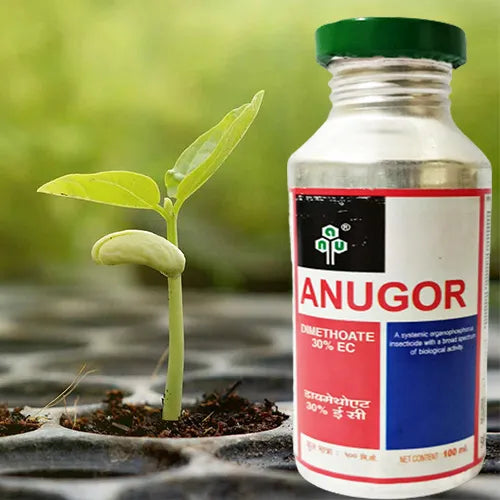 Sold out
Sold outInsecticide | Anugor Insecticide
No reviewsRegular price Rs. 165.00Regular priceUnit price / per -
Cocoliner Supporting Poles (Coir Poles)
No reviewsRegular price Rs. 150.00Regular priceUnit price / perRs. 199.00Sale price Rs. 150.00Sale -
LOBELLO Premium Quality self watering pot
No reviewsRegular price From Rs. 99.00Regular priceUnit price / per
Best Selling Fruit Plants
-
Thai KG 10 Jamun (Syzygium Cumini) - Plant
No reviewsRegular price Rs. 1,449.00Regular priceUnit price / perRs. 1,950.00Sale price Rs. 1,449.00Sale -
Ardisia Elliptica (Duck's eye, Coralberry) - Plant
No reviewsRegular price Rs. 1,249.00Regular priceUnit price / perRs. 1,700.00Sale price Rs. 1,249.00Sale -
Jungle Jalebi "Thornless" (Pithecellobium Dulce) - Plant
No reviewsRegular price Rs. 1,399.00Regular priceUnit price / perRs. 1,850.00Sale price Rs. 1,399.00Sale -
Grafted Peach (Prunus Persica) Aadu – Plant
No reviewsRegular price Rs. 1,449.00Regular priceUnit price / perRs. 2,100.00Sale price Rs. 1,449.00Sale -
Jungle Jalebi white (Pithecellobium Dulce) Manila Tamarind - Plant
No reviewsRegular price Rs. 749.00Regular priceUnit price / perRs. 1,000.00Sale price Rs. 749.00Sale -
Kaagazi Nimboo, Lemon – Plant
No reviewsRegular price From Rs. 499.00Regular priceUnit price / perRs. 750.00Sale price From Rs. 499.00Sale -
Noni (Morinda Citrifolia) - Plant
No reviewsRegular price Rs. 1,399.00Regular priceUnit price / perRs. 2,100.00Sale price Rs. 1,399.00Sale -
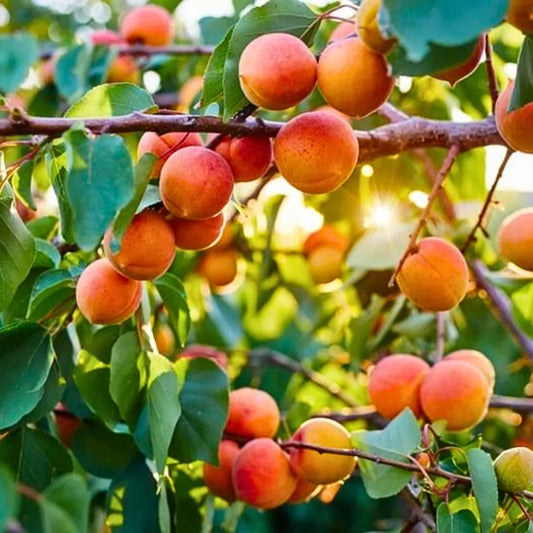
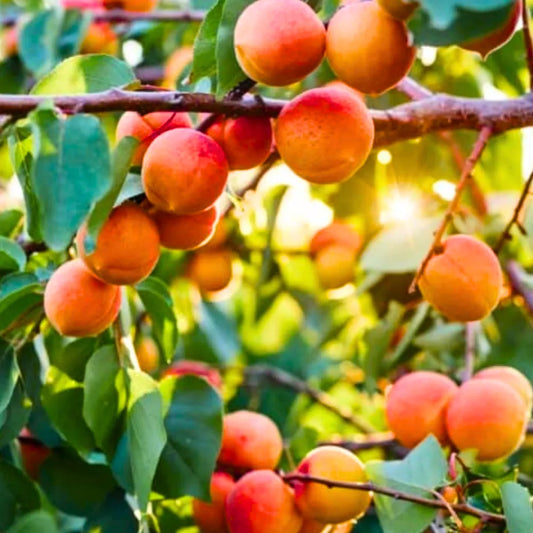 Sold out
Sold outApricot (Prunus Armeniaca) - Plant
No reviewsRegular price Rs. 1,399.00Regular priceUnit price / perRs. 2,100.00Sale price Rs. 1,399.00Sold out -
Plum (Prunus Domestica) Aloo Bukhara - Plant
No reviewsRegular price From Rs. 599.00Regular priceUnit price / perRs. 800.00Sale price From Rs. 599.00Sale -
Walnut (Juglans Regia) - Plant
No reviewsRegular price Rs. 649.00Regular priceUnit price / perRs. 900.00Sale price Rs. 649.00Sale -
Blackberry (Rubus Fruticosus) - Plant
No reviewsRegular price Rs. 1,499.00Regular priceUnit price / perRs. 2,000.00Sale price Rs. 1,499.00Sale -
Peanut Butter (Bunchosia Glandulifera) - Plant
No reviewsRegular price From Rs. 649.00Regular priceUnit price / perRs. 850.00Sale price From Rs. 649.00Sale -
Rambutan N18 (Nephelium Lappaceum) - Plant
No reviewsRegular price Rs. 1,149.00Regular priceUnit price / perRs. 1,700.00Sale price Rs. 1,149.00Sale -
Kashmiri Almond (Badam) - Plant
No reviewsRegular price From Rs. 749.00Regular priceUnit price / perRs. 1,000.00Sale price From Rs. 749.00Sale
Let customers speak for us
from 73 reviewsNice packing good plant
The plant, a creeper Thunbergia grandiflora alba white received in excellent condition. The plant looks healthy and hope it grows well. The size was small but already had flowering buds. Keep up the good work.
The packaging of the plant was excellent. The plant was healthy. I wish it grows well in our garden and bloom well. Keep up the good work.
this is my second purchase from Lalit ent. From Bhopal to Mumbai. Nice timely delivery. Healthy plant. Both desi hibiscus and Rama Tulsi healthy plants
Packaging 5 Stars
Delivery time 4 Stars.
Plant quality - Healthy
Plant size - As expected
Shipped through Nursery Nisarga via Delhivery
Plant arrived healthy and in excellent packaging. Best packaging I've seen from any online nursery. Thanks nursery Nursery Nisarga
The plant was very fresh and neatly packed. The delivery was quicker than I expected and very pleased with it. Doesn’t have any flowers yet but I’m very sure it’ll bloom some wonderful flowers as time progresses.
Good packing
I recently purchased Kalpvriksha plant from Lalit Enterprise, it delivered in very good condition
Nice packaging. thanks
My alocasia has been an absolute delight... While the first few leaves started to turn yellow initially, I kept caring for the plant as recommended, and to my joy, it began to thrive beautifully. Now it graces my home with lush, vibrant foliage and adds a tropical charm that’s simply unmatched. It's a resilient and rewarding plant that truly transforms with the right care. Highly recommended...
Its beautifully variegated foliage, with shades of green and creamy yellow, adds a touch of sophistication to any space. The plant I received was well-packaged, healthy, and ready to thrive. It has quickly become the centerpiece of my indoor garden. Caring for it is simple, making it a great choice for both beginners and seasoned plant enthusiasts. If you're seeking a plant that's equal parts stylish and low-maintenance, this one's a winner....
The plant arrived in perfect condition, and its furry, rabbit like rhizomes are such a delight….. truly unique and charming. It's a breeze to care for, needing just the right amount of indirect light and moisture to thrive. The lush, vibrant green leaves have added a touch of natural elegance to my space, and it's quickly become a favorite in my plant collection. Lalit Enterprises provided top-notch service with fast delivery and excellent packaging. Highly recommend both the Rabbit Foot Fern and Lalit Enterprises to anyone looking to add a stunning plant to their home....
Plants are too awesome and healthy condition plants I will place more orders in future
plant very good condition packing is very good







